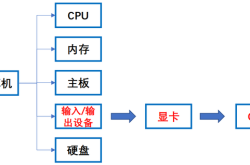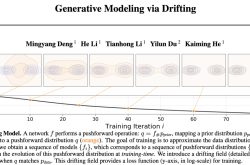ZEEKR absorbing Lynk & Co., will An Conghui be the best candidate?
![]() 11/18 2024
11/18 2024
![]() 614
614
Written by | Puzi Xu
On November 14, ZEEKR released its third-quarter financial report for 2024. Sales were high, losses were narrowing, and gross profit margins were good: if only looking at the third-quarter performance, ZEEKR seems to be on a roll. However, since the beginning of this year, this automaker has seemed strange, perhaps rushing for profits and growth, with hurried steps and even distorted actions. Whether it's the "three generations under one roof" of the ZEEKR 001 objectively "backstabbing" older car owners, or the recent marketing stunt of eating hotpot in a new car: ZEEKR's aggressive product strategy and slightly exaggerated marketing, all of these actions are unreservedly serving the company's own growth and profits.
However, affected by this, ZEEKR has also begun to move closer to being a non-user-oriented automaker, to some extent neglecting the maintenance of user reputation, giving off a sense of exploiting resources without regard for sustainability. Compared to other new-energy vehicle companies that face the risk of "bankruptcy," ZEEKR, backed by Geely, has never lacked consumer "security." However, the market's perception of ZEEKR has become increasingly complex in the past year, not because of doubts about how much resources the automaker can rely on, but rather because of increased focus on whether ZEEKR can regain its user-centric origins. Moreover, as the fastest new-energy vehicle company to list in the US, ZEEKR has gathered almost "unlimited" resources from the entire Geely Group, but this significant investment also means there can be no mistakes. For ZEEKR CEO An Conghui, the pressure is palpable.
ZEEKR's 'little secret' in gross profit margins
The financial report shows that ZEEKR's revenue in the third quarter was 18.36 billion yuan, a year-on-year increase of 31% and a quarter-on-quarter decrease of 8.4%, essentially mixed results. Among them, due to the launch of the ZEEKR 7X new model and an increase in the average selling price of vehicles brought about by changes in the product mix of various models, ZEEKR's vehicle sales revenue in the third quarter increased by 42% year-on-year and 7.2% quarter-on-quarter, reaching 14.401 billion yuan. However, due to the decline in domestic battery pack sales, ZEEKR's revenue from batteries and other components fell by 1.3% year-on-year and 38.8% quarter-on-quarter, reaching 3.2453 billion yuan, becoming an important factor dragging down ZEEKR's overall revenue performance. Additionally, with ZEEKR's overall gross profit margin falling from 17.2% in the second quarter of 2024 to 16% in the third quarter, the company's overall gross profit also fell by 14.7% quarter-on-quarter to 2.941 billion yuan.
The good news is that ZEEKR, which has been eager to "recover blood" since its listing, although suffering net losses of 4.514 billion yuan, 7.655 billion yuan, and 8.264 billion yuan from 2021 to 2023, respectively, has gradually narrowed its losses this year. The financial report shows that ZEEKR's net loss in the third quarter was 1.139 billion yuan, a year-on-year decrease of 21.7% and a quarter-on-quarter decrease of 37%, with a clear rebound trend. In fact, due to the large initial investment scale of new-energy vehicle companies, losses are a common problem in the industry. At this point, compared to net profit performance, the gross profit margin of the entire vehicle may be a more critical indicator for measuring the operating status of an automaker. From this perspective, ZEEKR's current gross profit margin for the entire vehicle is commendable: in the third quarter, ZEEKR's gross profit margin for the entire vehicle reached 15.7%, which, although down from 18.1% in the same period of 2023, can still maintain a high level. Since its independent operation three years ago, ZEEKR's gross profit for the entire vehicle has continued to improve: for example, from 2021 to 2023, ZEEKR's gross profit margins for the entire vehicle were 1.8%, 4.7%, and 15%, respectively.
For horizontal comparison, in 2023, XPeng's gross profit margin for the entire vehicle was -1.6%, NIO's was 11.9%, Tesla's was 18.2%, and Li Auto's was 21.5%. It can be said that in 2023, ZEEKR's gross profit margin for the entire vehicle was not inferior to other new-energy vehicle makers. However, it is worth noting that part of the reason ZEEKR's gross profit margin for the entire vehicle has increased rapidly in recent years is due to the "dividend" from the Geely Holding Group. At present, ZEEKR's main business scope includes the research and development, procurement, and sales of electric vehicles and other related products. However, ZEEKR itself does not manufacture the entire vehicle. ZEEKR generally entrusts the manufacturing of vehicles to the Ningbo ZEEKR Plant, Chengdu Plant, and Meishan Plant under Geely Holding. Among them, the Ningbo ZEEKR Plant produces the ZEEKR 001 and 009, while the Chengdu Plant produces the ZEEKR X model. For this reason, ZEEKR needs to pay Geely Holding for raw materials and processing fees. Generally speaking, if a new-energy vehicle company does not build its own factory, then the investment, depreciation, and other expenses it should bear, as well as the resulting financial pressure, will also be greatly reduced.
From this perspective, as ZEEKR places its factories outside the financial report, compared to other new-energy vehicle peers, ZEEKR can better embark on its journey lightly equipped, improve its gross profit margin, and also use Geely's established production lines to improve vehicle quality, achieving multiple benefits with one stone. More importantly, the car purchase fees for vehicles produced by ZEEKR and entrusted to Geely Holding often have payment terms and will not immediately consume ZEEKR's cash. Additionally, ZEEKR and Geely Holding can adjust the payment terms at any time, which can also improve ZEEKR's cash flow performance.
Because of this, without heavy assets such as factories, ZEEKR's liabilities are mainly reflected in various payables: as of the third quarter of this year, ZEEKR's accounts payable were 3.589 billion yuan, bills payable were 12.474 billion yuan, payments payable to related parties were 15.009 billion yuan, and various payables together accounted for 74% of ZEEKR's total liabilities of 41.93 billion yuan. Affected by this, at the end of the third quarter of 2024, ZEEKR's cash and cash equivalents reached 5.64 billion yuan, and with restricted cash, it exceeded 8.3 billion yuan, setting a new record. Considering that ZEEKR's cumulative deliveries in the first 10 months of this year increased by 82% year-on-year to nearly 170,000 units, if there are no major changes in the fourth quarter, ZEEKR, which is "backed by a big tree," is likely to further reduce its losses or even turn losses into profits by the end of 2024.
Winning a tough battle inevitably involves sacrifices
In July this year, ZEEKR CEO An Conghui released an open letter titled "A Letter from Congcong: Staying Strategic Amidst the Fray, Sprinting Ahead!" In the letter, he emphasized that ZEEKR must challenge the goal of delivering over 30,000 units per month within the year and stated that this was the real tough battle of the year. Previously, ZEEKR announced its sales target for the entire year of 2024 as 230,000 units. If we follow the pace of the first 10 months, coupled with the boost from the new ZEEKR 7X and ZEEKR MIX models, ZEEKR's annual sales target is already within reach. However, issues always need to be viewed dialectically. For example, to win a tough battle, sacrifices are inevitable. At this point, if a company only focuses on the pressure from the leadership's "ironclad orders," concentrating all efforts on growth and even tying all actions to revenue figures, then those executing at the lower levels will often feel constrained and may even distort their actions, thereby ignoring the fact that users are fundamental.
From this perspective, it is not surprising that the rare "three generations under one roof" farce of the ZEEKR 001 occurred in 2024: since the beginning of 2023, the ZEEKR 001 has undergone three facelifts in succession (2023, 2024, and 2025 models). The latest 2025 model was released less than six months after the previous version.
Rapidly updating models to boost sales is not inherently problematic. However, the crux of the issue lies in the pace and even the inconsistency in the promotional messaging of some senior executives at ZEEKR, which, under various influences, invisibly "induces" users and forces them to make purchases. Such an urgent mindset seems difficult to reconcile with what ZEEKR CEO An Conghui emphasized in his open letter about "staying strategic amidst the fray." Moreover, the impact of ZEEKR releasing "three generations" in one year is far-reaching. On the one hand, the ZEEKR 001 has always been the backbone supporting ZEEKR's sales, but due to the continuous impact of this incident, sales of this popular model are inevitably declining: although ZEEKR delivered over 25,000 units in October this year, sales of the ZEEKR 001 were almost halved compared to the 13,000 units delivered in May and June this year. On the other hand, once the user base of the backbone model is shaken, in the short term, the automaker may be able to compensate for sales with new launches and mergers, but in the long run, the brand value of the automaker will undoubtedly be damaged.
Especially considering that ZEEKR's current main models are concentrated in the highly competitive price range of 200,000 to 300,000 yuan, if the brand is labeled as "eager for quick success and instant benefits" or "backstabbing car owners," its users will inevitably be encroached upon by other automakers, which is truly not worth it. More importantly, the distorted actions caused by excessive focus on growth seem to be affecting ZEEKR's way of doing things in all aspects and continue to permeate: in addition to "replacing three generations in one year," the most recent example is undoubtedly the promotional case of Yang Dacheng, vice president of ZEEKR, posting on social media about eating hotpot in a ZEEKR MIX, which has also caused quite a bit of controversy.
ZEEKR is in a hurry, but let's not rush
In addition to overemphasizing growth and ignoring the user experience, another constraint facing ZEEKR stems from internal homogeneous competition. Especially the conflict in product positioning and the competition for internal resources between Lynk & Co. and ZEEKR have attracted much attention in recent years. In the first three quarters of this year, Lynk & Co. sold 169,800 units, and ZEEKR sold nearly 150,000 units, with the two brands accounting for nearly 30% of Geely Group's total sales. It can be said that the two brands are not only the pillars of sales for the Geely Group but also play important roles in Geely's new energy transition. However, the "competition" between the two brands has intensified in recent years. For example, the predecessor of the ZEEKR 001 was Lynk & Co.'s first pure electric vehicle, but assigning the 001 to ZEEKR objectively hindered the development of Lynk & Co.'s electric vehicles.
In recent years, Lynk & Co., which originally focused on hybrid models and gained more opportunities as the market heated up, has shifted its focus to the pure electric field: for example, this year, Lynk & Co. launched its first pure electric sedan, the Z10, which overlaps with the ZEEKR 001 and ZEEKR 007, and the total delivery volume of this model in the first two months after its launch was less than 5,000 units. At the same time, ZEEKR, which has already achieved success in the pure electric market, is planning to launch hybrid models, further overlapping with Lynk & Co.'s main battlefield: in this way, you have me, and I have you, and the internal competition between Geely's "twin stars" is even fiercer than that with external competitors.
Seventeen years ago, the Geely Holding Group released the "Ningbo Declaration" and subsequently began its strategic expansion. Starting with the acquisition of Volvo, Geely Holding has successively brought Proton Holdings and Lotus Cars under its wing and incubated multiple brands such as Lynk & Co. and ZEEKR internally. Over the years, Geely has achieved significant growth in performance, covering almost the entire automotive consumer market from low-end to high-end. However, as competition in the new-energy vehicle market intensifies, the strategy of "the more children, the merrier" seems to be gradually becoming outdated: in the Chinese new-energy vehicle market alone, there are over 100 new energy vehicle models planned to be launched in 2024.
Moreover, due to Geely's decentralized R&D and supply chain over the years, there has also been objective duplication of funds and "vicious" competition among sibling brands. From this perspective, the "competition" between ZEEKR and Lynk & Co. is just a microcosm, and the inevitable merger to curb internal consumption is also imperative. The good news is that the elephant has not been sleeping all the time. On the day ZEEKR released its third-quarter report, Geely Holding Group announced with great fanfare the official merger of ZEEKR and Lynk & Co. In fact, just two months after the release of the "Taizhou Declaration" in September this year, which emphasized integration, efficiency enhancement, resistance to market risks, and highlighting one's own advantages, Geely completed an internal equity adjustment and reorganization, and the swift merger of Lynk & Co. and ZEEKR sufficiently demonstrates Geely's determination.
It is worth noting that the more Geely values ZEEKR and the more resources it tilt s toward it regardless of cost, the more crucial the person leading this battle becomes, as this is a battle that cannot be lost and where every move, good or bad, will be continuously amplified. "Listing is only the starting point, a link in the entire marathon." Previously, ZEEKR CEO An Conghui said that Geely Holding Group's development goal is to become the Volkswagen Group of the new energy vehicle era, and ZEEKR shoulders the global mission of high-end pure electric vehicles.
However, in 2024, despite being given great authority by Li Shufu, An Conghui, who is highly anticipated, has led ZEEKR to focus excessively on growth while ignoring user reputation, causing dissatisfaction among some older ZEEKR car owners, which has not yet been completely resolved. From this perspective, if Geely wants to become the Volkswagen of the new energy era and play its ZEEKR card well, An Conghui cannot afford to make mistakes and dare not make mistakes.








